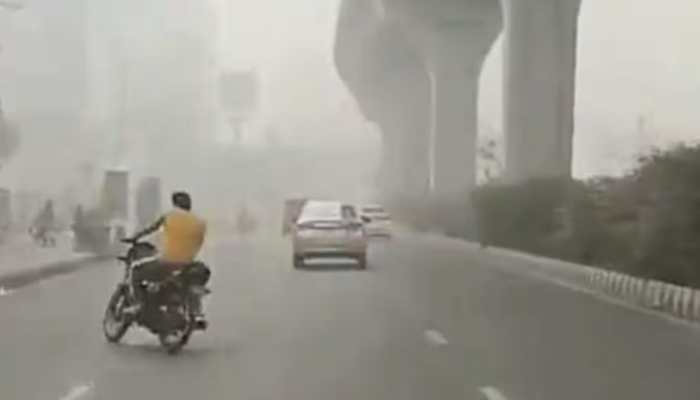Air Pollution: Supreme Court Questions Delhi Govt Over Entry Of Trucks, Calls For Immediate Action
The court further pointed out that the Delhi government and city police had failed to ensure that heavy vehicles were not allowed into the capital.
) Representative image
Representative image The Supreme Court of India has expressed concern over the lack of effective implementation of the Graded Response Action Plan (GRAP) Stage 4 restrictions in Delhi, which were necessary to curb severe air pollution levels in the National Capital Region (NCR).
The court's intervention comes after the Air Quality Index (AQI) in Delhi spiked to hazardous levels earlier this week, triggering the need for stricter pollution control measures.
Heavy Vehicle Entry Ban
During a hearing on Friday, the Supreme Court questioned the Delhi government's ability to enforce the GRAP Stage 4 restrictions effectively. The bench, led by Justices Abhay S Oka and Augustine George Masih, noted that it was "very difficult" to assume that truck entries were being fully prevented, despite the stringent guidelines in place.
The court further pointed out that the Delhi government and city police had failed to ensure that heavy vehicles, including those registered outside Delhi and not carrying essential items, were not allowed into the capital.
To verify this, the court directed authorities to submit CCTV footage from 13 major entry points into Delhi, to confirm whether trucks had been permitted to enter despite the ban.
Court Orders Investigation into Lapses
In a bid to hold authorities accountable, the Supreme Court appointed 13 lawyers to visit the 13 key entry points and submit a report by November 25, detailing whether the GRAP Stage 4 restrictions were being adhered to.
The court also suggested that police personnel be deployed at these points to monitor and prevent the entry of heavy and light commercial vehicles (LCVs) that do not carry essential goods.
The investigation is expected to shed light on the true extent of non-compliance and provide a clearer picture of the enforcement failures in Delhi.
GRAP-4 Restrictions and Their Importance
Stage 4 of the GRAP, implemented when the AQI surpasses the 'severe-plus' category (AQI > 450), includes measures such as a ban on the entry of heavy vehicles and a halt to construction activities in public projects. The aim is to reduce vehicular emissions and dust pollution, which contribute significantly to the deterioration of air quality in the capital.
The Delhi AQI hit a critical 457 on Sunday, rising further to 485 by Monday morning, well above the threshold for GRAP Stage 4 to take effect. However, the Supreme Court pointed out serious lapses in the enforcement of these restrictions, particularly regarding the entry of trucks and commercial vehicles.
Urgent Action Required
Earlier in the week, the Supreme Court had highlighted the constitutional duty of the central and state governments to ensure that citizens live in a pollution-free environment.
The court had expressed frustration over the delay in implementing the GRAP, especially Stage 3 and Stage 4 measures, which should have been enforced even in anticipation of the AQI crossing hazardous levels.
The Commission for Air Quality Management (CAQM) came under criticism from the court for its delayed response. The bench asserted that waiting for improvement in the AQI before enforcing the necessary measures was an inappropriate approach. Immediate action, the court stressed, was needed to curb the pollution crisis
Stay informed on all the latest news, real-time breaking news updates, and follow all the important headlines in india news and world News on Zee News.
Live Tv







)
)
)
)
)
)
)
)
)
)
